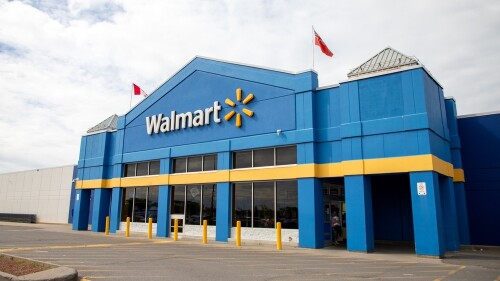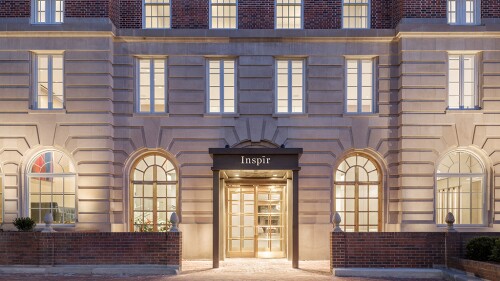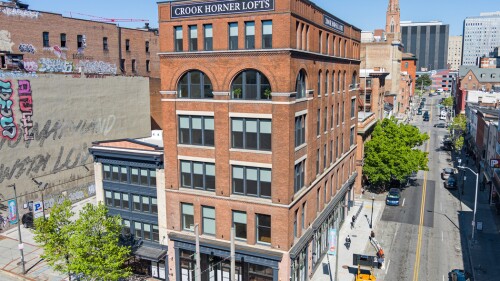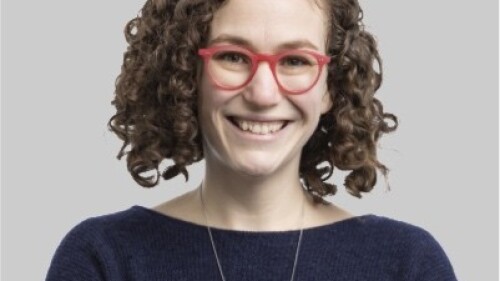A pair of developers, one trained as a lawyer and the other as a scientist, during a recent ULI Kansas City eventshared the paths that led them to become developers and help transform their respective cities.
Developers Othello Meadows III and Mark Deutschmann do not have a lot in common. Meadows, president and chief executive officer of Seventy Five North Revitalization Corp., began his career as an attorney; Deutschmann, a real estate broker and author of One Mile Radius: Building Community from the Core, started as a zoologist. Meadows returned to his hometown of Omaha after practicing law in Atlanta, and Deutschmann visited Nashville and never left.
But using real estate as a tool, both have helped shepherd transformational change in their respective cities.
Building a Positive Mentality
Meadows’s real estate development career began when he left his law firm in Atlanta to run a voter registration drive in Omaha for the 2008 election. He had grown up on Omaha’s north side, where social unrest in the 1970s and construction of the neighborhood-dissecting U.S. Route 75 in the early 1980s had contributed to disinvestment and rising crime. After the election, he and other community members were looking for an opportunity to improve the area and launched Seventy Five North in 2011.
The group set its sights on 26 acres (9.3 ha) one mile north of downtown where the Pleasantview Homes housing project once stood. The local housing authority had demolished the crime-ridden complex in 2008 but was strapped for cash; Seventy Five North purchased the lot as well as an adjacent 13 acres (5.3 ha). Working with Purpose Built Communities, a consulting firm focused on revitalizing communities, and using financial support from Warren Buffet, Seventy Five North began developing Highlander, a $90 million mixed-income neighborhood focused on health and sustainability.
“Often when people talk about neighborhoods on the north side, they use a very deficit-based mentality and point out all the things that are wrong,” Meadows told the gathering. “But we tried to think about what the assets were.”
In addition to its acreage, Seventy Five North identified nearby organizations such as the Urban League of Nebraska and Charles Drew Health Center as positive neighborhood components that it could leverage. Following the lead of other successful revitalization strategies, the organization focused on providing the community with cradle-to-college education, health and wellness programs, and homes.
Of those three elements, Seventy Five North considers education the backbone. It worked with Omaha Public Schools to bring new staff, a new principal, longer schooldays, and a longer school year to the local elementary school. In an effort to reverse a negative self-image that has pervaded in the neighborhood, the organization emphasizes using education to build self-confidence to preserve children’s ambitions, Meadows said.
Seventy Five North also developed the Accelerator, a 65,000-square-foot (6,000 sq m) community event space to help fulfill the organization’s health and wellness aims. The three-story building opened this year and functions like a town center. Among other users, it houses Creighton University and community college programs, as well as a locally owned coffeehouse. Three small restaurants are expected to open next year in a miniature food hall setting.
To achieve its housing goals, Seventy Five North has built 101 townhouses and apartments, including 17 multi-generational units that feature two bedrooms and separate studio quarters. Sixty-two units in this first phase of development are affordable and 39 are market rate. Leasing interest has been strong, and Meadows acknowledged that the extra cost his organization paid for high-quality construction, designs, and finishes has helped fuel demand.
“People were really hungry for high-quality housing in this part of town,” he said. “We wanted to make sure that people who live in this neighborhood or who decide to come to this neighborhood don’t feel like they’re sacrificing or compromising anything.”
Filling the Core
Deutschmann’s development career started while he was returning home from stint researching whales near Vancouver, British Columbia. After a fire ruined the motor in his small boat, he found his way to an island inhabited by two people who befriended him. Later, Deutschmann’s friends moved to Nashville, and while visiting them, he decided to stay.
“When I first moved to Nashville in the ’80s, it was a hollow core of what it is today,” said Deutschmann, founder of Village Real Estate Services, a residential brokerage with 360 agents, and Core Development Services, a condominium development firm. “Downtown hadn’t had housing in 40 years, and Midtown neighborhoods had been ravaged by a car-centric society.”
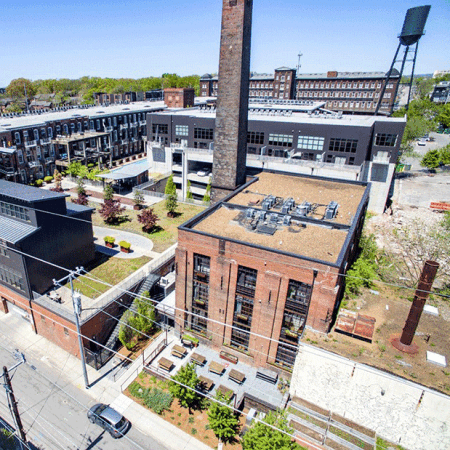
Core Development converted an old 400,000-square-foot (37,161 sq m) warehouse into 352 townhomes and flats in Nashville’s Germantown district. The project was Mark Deutschmann’s first development, and the team included Solomon Brothers Construction and architects Gobbell Hays Partners and Lambe & Associates. (Village Real Estate Services)
While using his juggling skills for income, Deutschmann got his real estate license and focused on a one-mile (1.6 km) radius surrounding Hillsboro Village, an old Midtown neighborhood in transition near Music Row and Belmont and Vanderbilt universities. Not only did the strategy work—Deutschmann became the top salesperson in the neighborhood, which turned into a hip, walkable urban enclave—but it also showed him how interaction with communities could fuel redevelopment, he said.
Later, in conjunction with launching Village Real Estate in 1996, Deutschmann dedicated 5 percent of the company to the Village Fund, the firm’s charitable organization focused on youth enrichment, the arts, and affordable housing.
“We set out to change the way real estate was practiced,” said Deutschmann, who is also chairman of ULI Nashville. “We figured that if we could give something back to the community, then we’d make a better impact.”
Meanwhile, Deutschmann had also turned his attention to the 12th Avenue South district, a residential and commercial area marked by boarded-up buildings next door to Hillsboro Village. Buying a home there, he launched a partnership with a developer, and the two worked with other groups to revive a three-block section of the district. The partners bought 11 buildings and helped raise funds and create a master plan to guide revitalization. Now known as 12South, it is one of the most successful urban neighborhoods in the city today, he said.
After witnessing condo construction ramping up in other cities, Deutschmann next began focusing on selling and developing condo projects downtown as demand in Nashville grew. To date, his Core Development group has completed 40 projects, including rehabilitating and converting an old 400,000-square-foot (37,000 sq m) warehouse into 352 lofts. In addition to his development work, Deutschmann is involved in Greenways for Nashville, a group that so far has created 86 miles (138 km) of trails, and in efforts to promote sustainable and affordable housing.
“Doing a lot of neighborhood-centric things and being engaged in the community can have a lasting, sustainable, and changing impact on a city,” he said.



